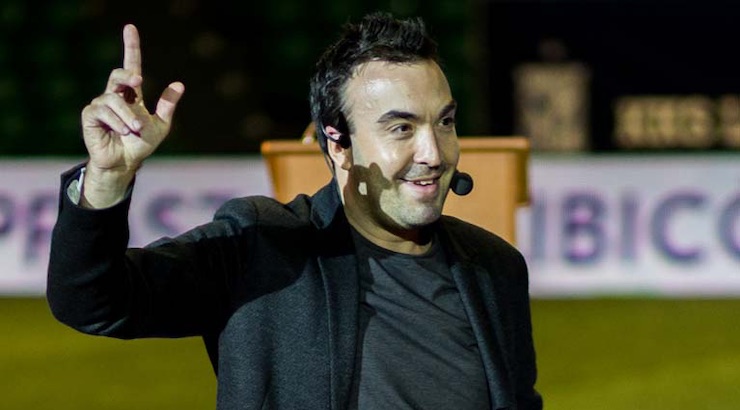The Ultimate Goal for Soccer Coaches: Developing Trust To Nurture Talent
Learn to think, train and play like the best soccer players in the world, from the man who works with them – Want to get ahead and really help your soccer career reach the next level? Read Dan Abrahams columns on SoccerToday.
A global sports psychologist and author specializing in soccer, Dan Abrahams is based in England and works with professional soccer players in the English Premier League (EPL). Abrahams has helped hundreds of soccer players – many who play in the English Premier League (EPL). From working with players at Crystal Palace to QPR, Fulham, and West Ham among others, Abrahams makes a huge difference. Abrahams has authored several books and has a Soccer Academy as well.
The ultimate for any soccer coach, in my opinion, is to win the trust of the players.
Without trust, it is impossible to develop individual players and to develop a team.

Here is my short guide to winning your players’ hearts and minds regardless of whether you coach youth or adult soccer.
Youth Soccer Coaches: Can you be Liked and Respected?
It is enormously challenging for any leader in any sport to be both liked and respected. Popular psychology suggests that one trades off with the other – be their mate and they won’t respect you, demand intensity and performance and they won’t like you. While it is difficult to blend the two together, I believe it’s impossible.
To bring a player into your coaching culture you have to care.
You have to develop an interest in the person behind the player. When coaching youth soccer players, it is helpful if you learn about their challenges at school. By knowing a little about each player you show you care, and in turn, you help increase their commitment and build the team’s chemistry.
Youth Soccer Players Want to be Coached
Your players are there to be coached by you and there is no better way to win their hearts and minds than to coach them – as individuals and as teammates.
One Useful Tip: Avoid judging their natural ability and focus your attention on the development process.
And, as a youth soccer coach, your worlds are very powerful. Use them wisely. Every word you say to a player counts. Most of all, remember that your players are showing up to practice to learn from you.
Players want to improve, develop and learn above anything.
They want to be taught and they want to be inspired through great coaching.
Trust is delivered through your expert eye and through your guiding voice.
A promise to players that they will develop their game under your tutelage will win their trust and loyalty more than anything else.

Youth Soccer Coaches: Blame Yourself, Not Your Players
Your players and team are merely a reflection of your coaching ability and your coaching culture. Never blame players for a loss. Merely offer correction. If they’ve made mistakes, red flag these as areas to coach and improve upon.
Mark it as an area of challenge for both you and the player to improve upon. Make the mistake ‘we’ rather than ‘him’ or ‘her’. Certainly don’t blame players in public. If there is a correction to be made, do so away from the lights and on the training ground or in the changing room.
Youth Soccer Players Need Constant Feedback
I have worked in many different coaching cultures around the world and I often find the least successful ones are found where communication is poor between coaching staff and players. It is really that simple.
Open lines of communication win player loyalty.
It shows you’re engaged in them as players and as people. It shows you’re invested in their game.
Make sure your conversations with players are specific to them – be specific with your instruction and your feedback.
Never compare a player to a teammate, but always make it goal and target oriented.
Research has repeatedly shown that feedback is most effective when it addresses a learner’s advancement towards a goal, rather than less meaningful aspects of performance.







